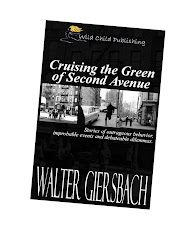 |
|
Marion Ballou Fisk
entertained thousands with her lectures under Chautauqua tents.
Her drawing of the campground illustrated one of
America’s most famous songs. |
I rushed to get in my PJs and pull the comforter up to my chin while she unbraided her long gray hair and placed her false teeth in a glass of water.
Then the stories began. My favorite was about a boy, born in New Hampshire years ago, “who would rather die than hoe beans, but his father and mother taught him that it was ‘work first and play afterwards.’”
Moms said that with the boy’s talent for music, “He took a hollow reed and fashioned a flute. His father felt that such genius should be encouraged.
“So, the boy and his sister
learned to play on a pump organ. They
played everything they knew, then they made up their own songs.
“Then the time came,” she said,
“when Uncle Sam ordered, ‘Come, follow me.’ It never occurred to him to seek an excuse why
he shouldn’t enter his country’s service.”
I knew who Uncle Sam was, and the
air raid sirens told me we were fighting the Germans and Japanese. But she was talking about some long-ago war
and I was quiet.
“He was away the night the summons
came, and all the way home the words and music to a little song kept running
through his mind. When he had reached
home he took an old violin and wrote a simple little piece.
“A few days later, he went down to
Concord, New Hampshire, to report for service.
He was found physically unfit and was dismissed. But there was a demand for a song by which
the soldiers might march and sing in camp.
The Oliver Ditson Company advertised for such a song, and the young man
sent down the simple song he had written the night of his draft, offering to
sell it to them for fifteen dollars.
“They were disgusted because of
its simplicity and refused to have it at any price. Instead, they hired a musician of
considerable note to write a song for them.
But, the soldiers simply wouldn’t sing it. Then, they remembered the little song they
had refused, purchased and published it, and in less than six weeks it was
being sung by every Southern campfire and in every Northern home.”
Moms would make sure I was still
tucked in — and still awake — before she continued.
“I remember when I was a little
girl, seeing an eccentric looking man come into our yard. He was driving a brown horse hitched to a
pink express wagon, and in the back was strapped a melodeon. My father and mother — your great grandpa and
great-grandma— received him with joy in the kitchen.
“I was allowed to sit up late while I listened to them talk, often about things I couldn’t understand. But I liked to listen to his kindly voice.
“At last they sang songs, and sometimes
my father and mother joined him, and he told us this story of his boyhood and
sang the song he had written the night of his draft, the song that made Walter
Kittredge known and loved all over our country.” And she began to sing softly, sadly.
“We are tenting tonight on the old
camp ground,
Give
us a song to cheer,Our weary hearts, a song of home,
And the friends we love so dear.
“Many are the hearts that are
weary tonight,
Wishing
for the war to cease,Many are the hearts, looking for the right,
To see the dawn of Peace.
Tenting
tonight, tenting tonight,
Tenting
on the old camp ground.
Moms passed away in that bed in
1961 at the age of 86. The bed is now in
the guest bedroom of my house.
Marion Ballou Fisk — my Moms — had traveled
the Chautauqua Circuit across the United States week after week between 1906
and 1926 to support her family. She was
billed as America’s Foremost Lady Cartoonist when musical entertainment and
uplifting lectures were delivered under the large tents. In small towns across America, this was the
only source of culture and respite from weary, rural chores.
I finally dug through cartons of
her papers and found her hand-written stories — including this one — and a
photo of her as she told crowds about Walter Kittredge who wrote one of the
Civil War’s most famous ballads.
I’m sure that one of the most rapt
audiences Moms ever had wasn’t a real audience at all. Just a small boy sleeping under the “tent” in
her four-poster bed.


